The Jeep check engine light is an alert to potential engine or emissions system issues. This light indicates that the car’s diagnostic system has detected a problem.
The Jeep check engine light is the warning system that signals possible issues with the vehicle. Some causes of Jeep check engine warning lights include Faulty O2 sensors, Damaged or missing gas caps, and other factors.
This Dbd guide on the Jeep warning light includes all details on common causes and how to reset it. We researched the reason for the Jeep engine warning light and consulted with the manufacturers to create this guide.
What does the Jeep check engine light mean?
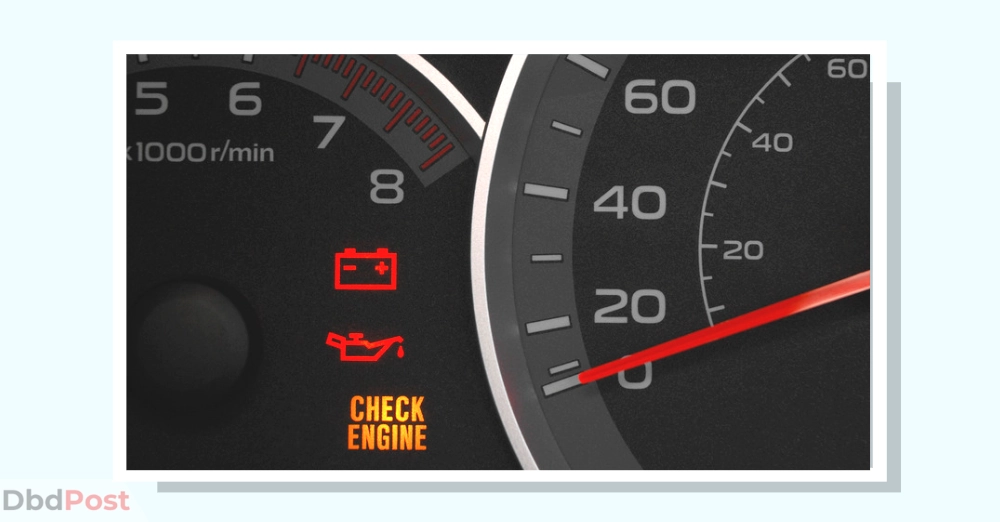
As a Jeep owner, knowing what the check engine light means and what to do when it turns on is essential.
The check engine light is a warning sign that indicates a problem with the engine or emission system. The light can turn on due to a faulty oxygen sensor, gas cap, ignition coil, or catalytic converter. It can also state problems with the fuel tank that could lower gas mileage.
If the check engine light is steady, it means there’s a non-critical issue that needs fixing quickly. On the other hand, a flashing check engine light is a problem that needs immediate attention. It’s crucial to address the root cause of the issue right away to prevent further damage to the car.
Once the issue gets resolved, the check engine light should turn off. However, resetting the light without fixing the underlying issue is not recommended, as it could lead to more severe problems in the future.
Understanding what the light means and taking immediate action can save you from costly repairs and keep your Jeep running smoothly.
Common causes of a Jeep check engine light
When the Jeep check engine light comes on, it indicates various problems related to the engine or emissions system. [1]Progressive, “Check Engine Light, https://www.progressive.com/answers/what-does-check-engine-light-mean/#:~:text=The%20reasons%20for%20a%20check,costly%20and%20time%2Dconsuming%20repair.”
Some of the common causes are:
- Bad spark plugs or plug wires
- Issues with aftermarket items such as alarms, exhaust, or other items
- Vacuum leak
- Damaged, missing, or loose gas cap
- Low or dead battery
- Faulty O2 sensor
- A bad or failing catalytic converter
These issues that cause the check engine light to come on can significantly impact a car’s performance and gas mileage.
It’s essential to address these issues promptly to prevent further damage and maintain optimal vehicle performance.
What to do when the Jeep check engine light comes on
Here’s a step-by-step guide on what to do when the Jeep check engine light comes on:
Step 1: Act promptly
If the check engine light on your Jeep starts flashing, don’t wait. Take your car to a mechanic immediately to avoid decreased performance, reduced fuel efficiency, and severe engine and emissions system damage.
Step 2: Check the gas cap
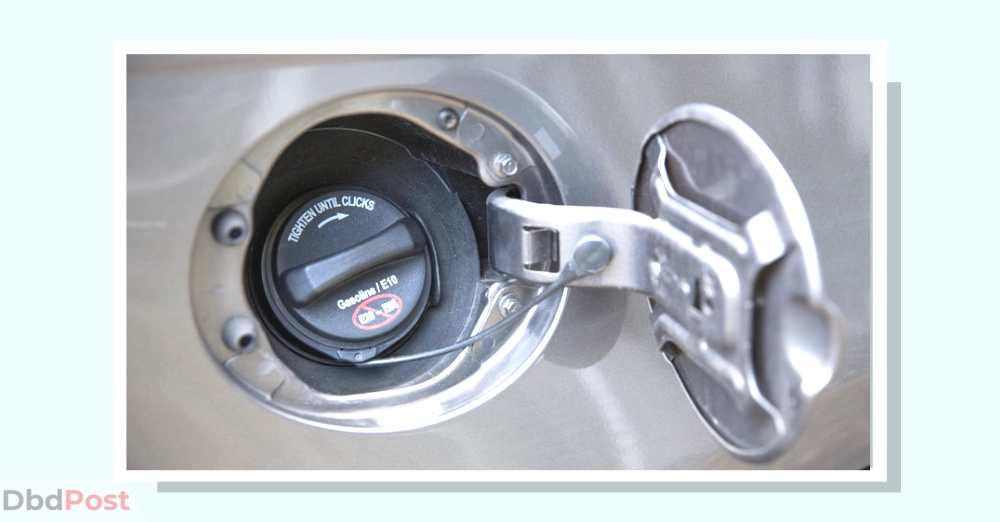
A loose or damaged gas cap is one of the most common causes of the check engine light coming on. Check the gas cap to ensure it’s properly tightened and not damaged. If it’s damaged or loose, replace it with a new one.
Step 3: Diagnose the problem
If the gas cap is fine, take your Jeep to a mechanic for a diagnosis. They will use a diagnostic tool to read the codes and identify the problem causing the check engine light to come on. Depending on the issue, they will recommend repairs or replacements.
Step 5: Regular car maintenance
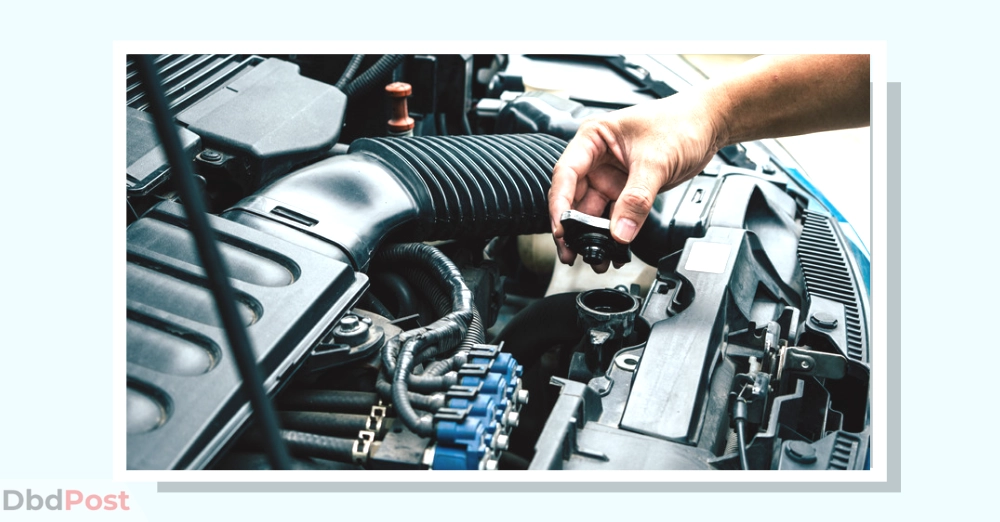
Regular car maintenance can help avoid performance issues such as rough running, misfiring, or hesitation while accelerating, and decreased gas mileage, emissions, and power. Make sure to follow the recommended maintenance schedule for your Jeep.
Following these steps, you can address the issue causing the check engine light to come on and maintain your Jeep’s optimal performance.
How to reset the Jeep check engine light?
If the Jeep check engine light comes on, addressing the underlying issue is essential before resetting it.
After fixing the problem, follow these steps to reset the check engine light and maintain optimal car performance:
Step 1: Turn off the engine
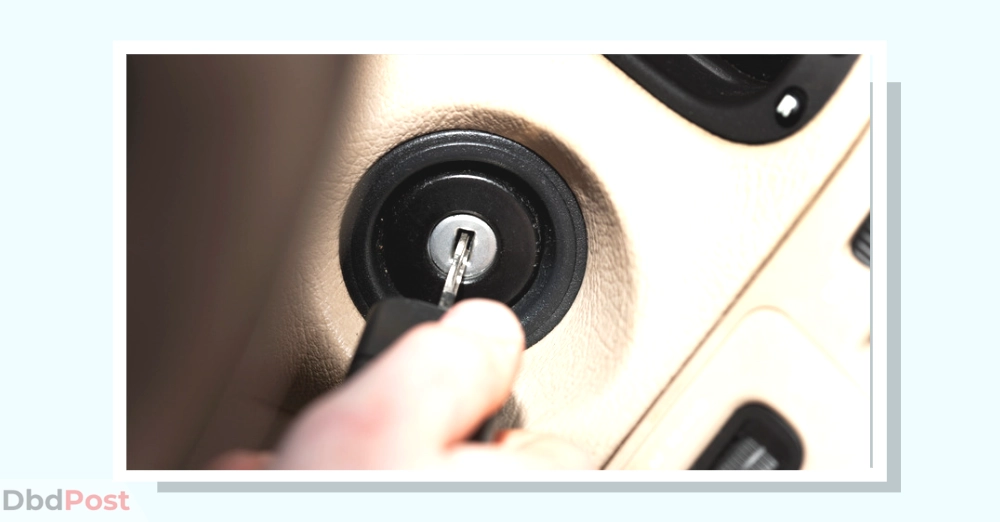
To ensure your safety, turn off the engine and wait for it to cool down. Wearing safety gloves and glasses is recommended before proceeding.
Step 2: Locate the battery
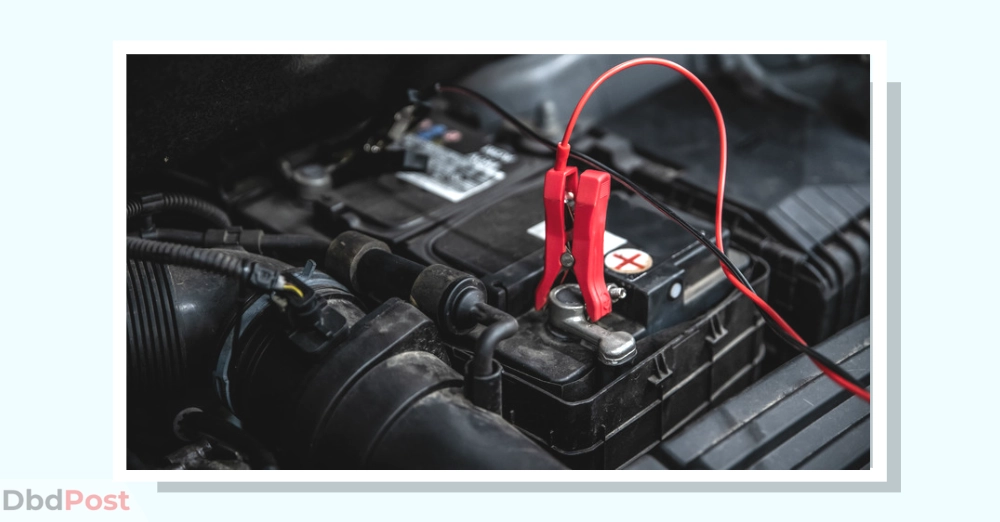
Locate the battery, which powers the car’s electrical system. The battery is usually under the hood or trunk but may vary based on the car’s make and model.
Step 3: Disconnect the negative terminal
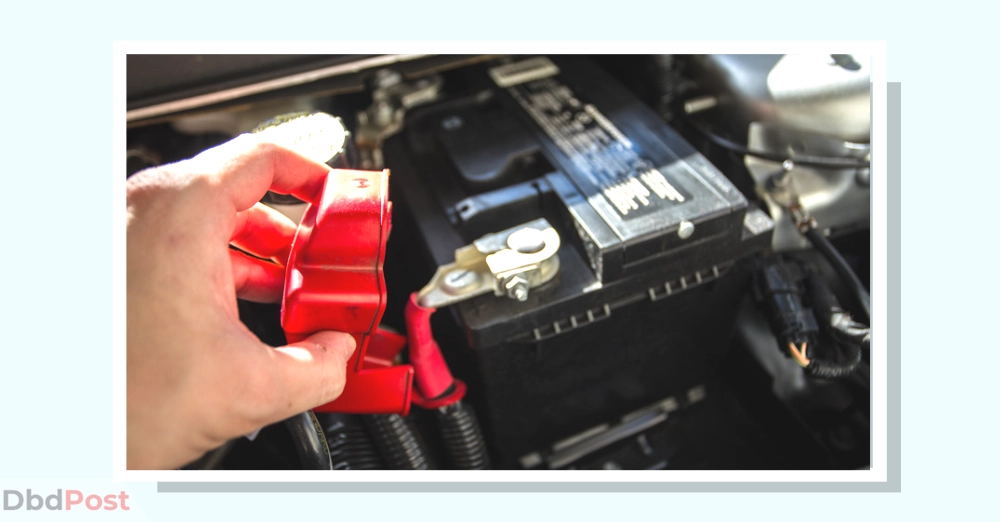
Disconnect the negative terminal using a wrench or socket set to avoid electrical issues or accidental shocks. Avoid touching the positive terminal.
Step 4: Wait for a few minutes
Wait a few minutes to allow any residual electricity to discharge from the system. This step ensures that the system is fully reset and ready to use.
Step 5: Reconnect the negative terminal
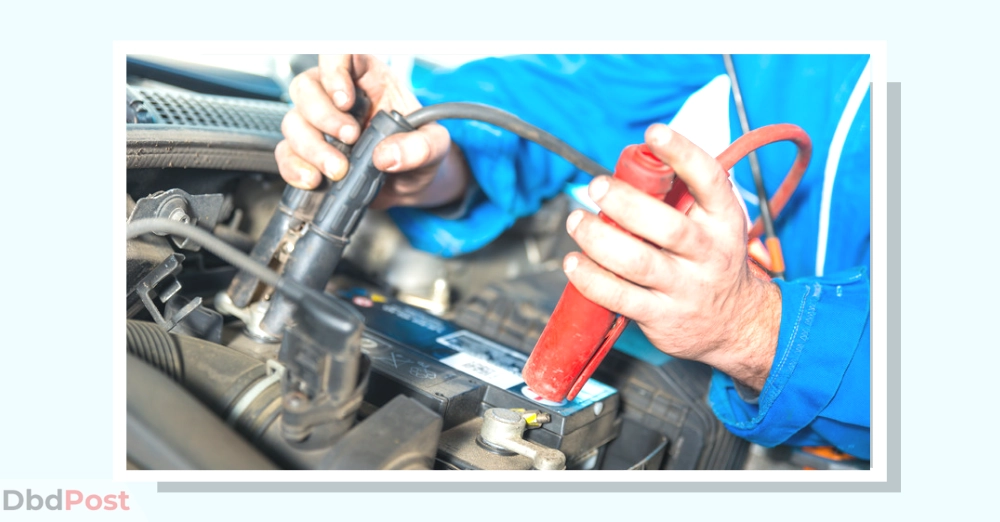
Reconnect the negative terminal on the battery and ensure it’s securely tightened and corrosion-free.
Step 6: Start the engine
Start the engine and let it run for a few minutes to ensure everything works correctly. This step confirms that the engine is running smoothly and the electrical system is functioning correctly.
Step 7: Check for any warning lights
The check engine light should be off, indicating that the system has been successfully reset. However, remember to monitor the car’s performance and address any issues promptly to prevent further damage.
Related Stories
- Check this guide to know everything about Ford Check Engine Light.
- Check this guide on Mazda Check Engine Light – here.
- Find out everything about Dodge Check Engine Light with our guide.
- If your Volkswagen Check Engine Light is on, check our guide for steps to fix it.
- Click on this guide on Buick Check Engine Light to know everything about the issue.
FAQs
Can I continue to drive my Jeep with the check engine light on?
When the check engine light illuminates your Jeep, it’s a warning sign that something isn’t functioning. Ignoring it may result in severe damage to the engine or emissions system. Taking your car to a qualified mechanic immediately is crucial to diagnose and fixing the issue.
How do I reset the check engine light on my Jeep?
To reset the check engine light in your Jeep is accessible with an OBD-II scanner or by disconnecting the battery. However, it’s essential to address the root cause of the issue before resetting the light. Failing to do so could further damage your vehicle’s systems and lead to emission issues.
To conclude, for the engine’s proper functioning, addressing any issues signaled by the Jeep check engine light is essential. We hope our comprehensive guide on the Jeep warning light provides all the necessary information you need.
- 107shares
- Facebook Messenger
About the author
DbdPost Staff is a team of writers and editors working hard to ensure that all information on our site is as accurate, comprehensive, and trustworthy as possible.
Our goal is always to create the most comprehensive resource directly from experts for our readers on any topic.



